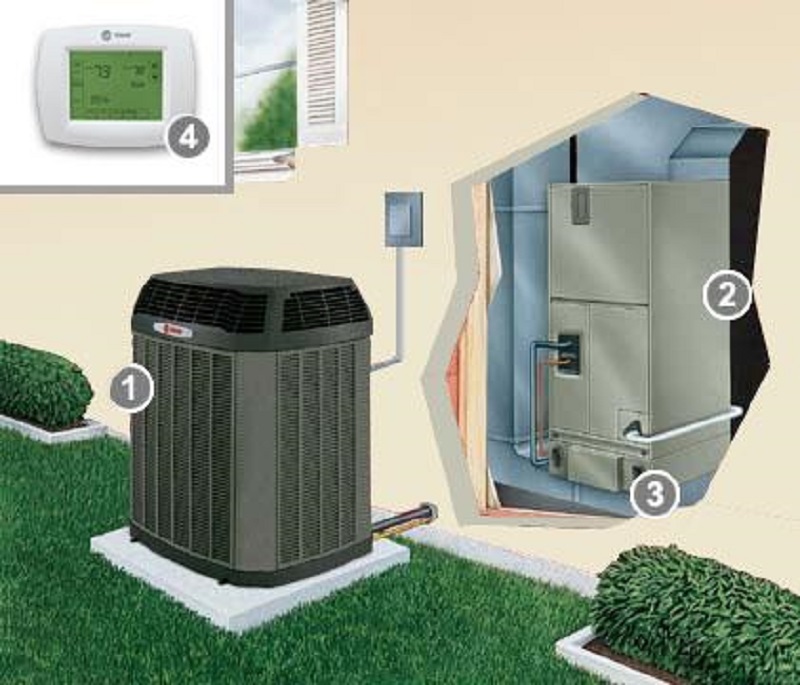A heat pump does not create heat, but just moves available heat from outside to inside and vice versa. It makes use of advanced technology along with refrigeration cycle for heating and cooling the homes. You can visit “Husky heat pumps” LTD to get to know about the air-source heat pump technology.
Cooling mode in summer
- Motorized fan pulls warm air from the room into ducts
- Compressor circulates refrigerant between outdoor condensing unit and indoor evaporator component.
- Accumulated warm air from indoor travels to air handler and simultaneously refrigerant gets pumped from condenser coil to evaporator coil. It absorbs heat as the indoor air passes over it.
- This cooled air gets pushed through the ducts connecting indoor air vents, thus reducing interior temperature.
- This cycle continues consistently to maintain room coolness.
Heating mode in winter
- The refrigeration cycle gets reversed, when it is switched to heat mode.
- The exterior coil functions as evaporator and interior coil works as condenser.
- Even though the temperature is cool outside, sufficient heat gets absorbed by condenser coil, which is released in the room by evaporator coil.
- Motorized fan pulls the cool air from inside the house into the ductwork.
- Refrigerant gets pumped from indoor coil to outdoor coil, where heat from surrounding air gets absorbed.
- This warm air gets pushed towards ducts connected to air vents and inside the room, thus increasing indoor temperature.
- This cycle persists constantly to keep occupants inside the home warm.
Different parts that comprise a heat pump system
Heat pump includes two parts, which use electricity as power source. Both outdoor unit and indoor unit are key components, which work in sync to distribute cool and warm air inside a home. Other components of a heat system are –
- Compressor – Moves refrigerant throughout the system. Generally, two kinds of compressor are used scroll and piston. Scroll compressors are quiet, and have long lifespan than piston compressors.
- Control board – Includes control of heating, cooling, and defrost mode.
- Refrigerant – It is a substance, which circulates through the copper pipes indoors and outdoors.
- Coils – Two coils are used evaporating and condensing that helps to heat and cool, as per the refrigerants directional flow.
- Refrigeration pipes and lines – Connects the indoor and outdoor unit
- Thermostatic expansion valve – Regulates refrigerant flow like faucet valve that regulates water flow.
- Reversing valve – refrigerant flow gets altered, which determines that your indoor space is heated or cooled.
- Accumulator – It is a reservoir that alters the refrigerant charge on the basis of seasonal needs.
- Heat strips – This component adds extra heat needed on very cool days to recover rapidly.
- Thermostat – Helps to set your needed temperature.
- Ducts – Air tunnels that connect various rooms inside the house.
Fixed speed and inverter technology
Fixed system includes single speed compressor, which takes long to get the desired temperature. It uses more power in comparison.
Inverter system includes variable speed compressor, whose speed can be increased or decreased. The room temperature to desired level gets reached quickly. Energy gets saved up to 30% in comparison.

